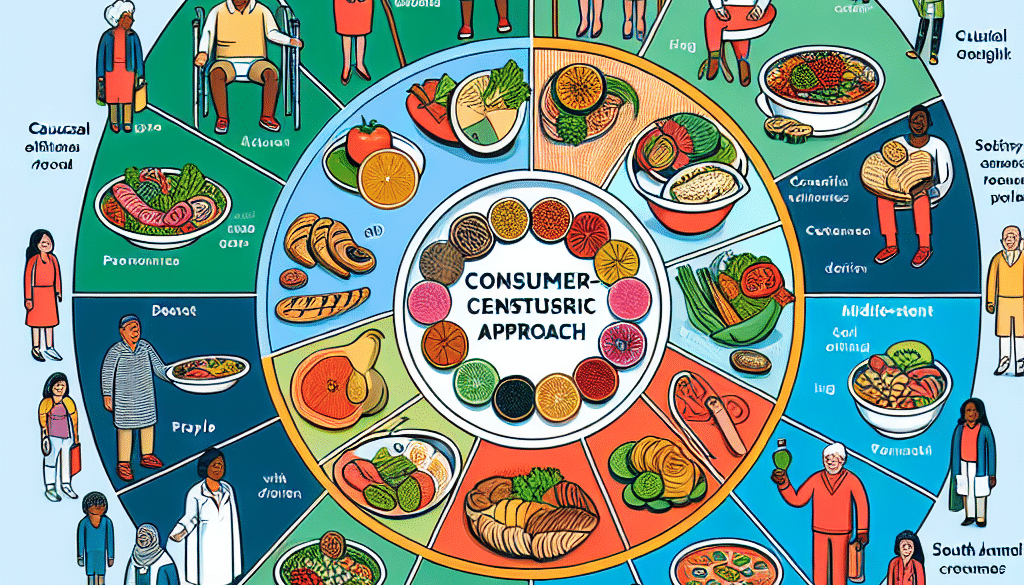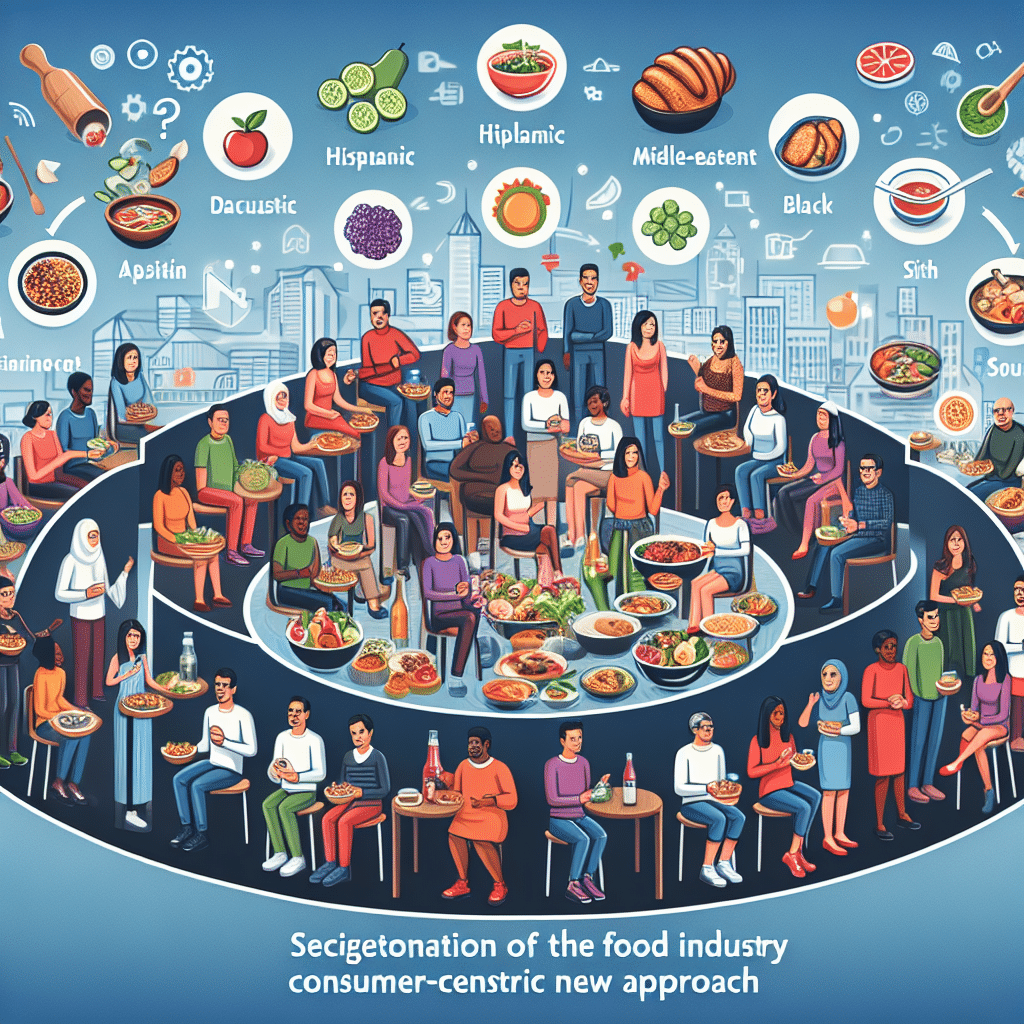Food Industry Segmentation: Consumer-Centric New Approach
-
Table of Contents
- Consumer-Centric Segmentation in the Food Industry
- Understanding Consumer-Centric Segmentation
- The Role of Big Data and Analytics
- Key Segments in the Food Industry
- Case Studies and Examples
- Impact on Product Development and Innovation
- Marketing Strategies Tailored to Consumer Segments
- Challenges and Considerations
- Conclusion: Embracing a Consumer-Centric Future
- Discover ETChem’s Protein Products
Consumer-Centric Segmentation in the Food Industry
The food industry is undergoing a significant transformation, driven by a shift towards a more consumer-centric approach. This new paradigm focuses on understanding and catering to the specific needs, preferences, and behaviors of different consumer segments. By leveraging data and insights, companies can tailor their products and marketing strategies to meet the demands of their target audiences more effectively. This article explores the various aspects of consumer-centric segmentation in the food industry, providing valuable insights and examples to illustrate the impact of this approach.
Understanding Consumer-Centric Segmentation
Consumer-centric segmentation is the process of dividing a market into distinct groups of consumers who share similar characteristics and buying behaviors. Unlike traditional product-focused segmentation, which emphasizes the features and benefits of products, consumer-centric segmentation prioritizes the needs and desires of consumers. This approach allows food companies to develop products and marketing campaigns that resonate with specific consumer groups, leading to increased customer satisfaction and loyalty.
The Role of Big Data and Analytics
Big data and analytics play a crucial role in enabling consumer-centric segmentation. By collecting and analyzing vast amounts of consumer data, companies can gain insights into purchasing patterns, dietary preferences, lifestyle choices, and other factors that influence buying decisions. This data-driven approach allows for more accurate and dynamic segmentation, enabling companies to adapt to changing consumer trends quickly.
Key Segments in the Food Industry
The food industry comprises several key segments, each with its unique characteristics and consumer base. Some of these segments include:
- Health and Wellness: Consumers seeking nutritious, low-calorie, or functional foods that offer health benefits.
- Convenience: Busy individuals looking for quick, easy-to-prepare meal solutions.
- Ethical and Sustainable: Consumers who prioritize environmentally friendly and ethically sourced products.
- Global Flavors: Adventurous eaters interested in exploring international cuisines and flavors.
- Plant-Based: Individuals who prefer vegetarian or vegan options for health, ethical, or environmental reasons.
Case Studies and Examples
Several companies have successfully implemented consumer-centric segmentation strategies. For instance, a leading snack brand might develop a line of organic, non-GMO snacks to cater to the health and wellness segment. A meal kit delivery service could offer a range of international cuisine options to attract consumers interested in global flavors. These examples demonstrate how understanding consumer segments can lead to innovative product development and marketing strategies.
Impact on Product Development and Innovation
Consumer-centric segmentation has a profound impact on product development and innovation. By focusing on the specific needs and preferences of different consumer groups, companies can create products that are more likely to succeed in the market. This approach encourages innovation, as companies strive to meet the evolving demands of their target segments.
Marketing Strategies Tailored to Consumer Segments
Marketing strategies are also significantly influenced by consumer-centric segmentation. Companies can craft personalized messages and campaigns that speak directly to the values and interests of their target consumers. This level of personalization leads to more effective marketing and higher engagement rates.
Challenges and Considerations
While consumer-centric segmentation offers numerous benefits, it also presents challenges. Companies must navigate the complexities of data privacy and ensure that their segmentation strategies do not lead to stereotyping or exclusion. Additionally, they must be agile enough to respond to rapid changes in consumer behavior and preferences.
Conclusion: Embracing a Consumer-Centric Future
The food industry’s shift towards consumer-centric segmentation represents a new era of personalized products and marketing. By embracing this approach, companies can build stronger relationships with their customers, foster brand loyalty, and drive growth. The key to success lies in the ability to leverage data and insights to understand and cater to the unique needs of different consumer segments.
Discover ETChem’s Protein Products
In line with the consumer-centric approach, ETChem offers a range of protein products that cater to various consumer needs. Whether you’re looking for marine collagen for beauty supplements, bovine collagen for joint health, or plant-based proteins for vegan consumers, ETChem has the right solution. Their high-quality collagens are perfect for companies looking to develop products for the health and wellness segment, while their commitment to sustainability appeals to the ethical and sustainable consumer base.
About ETChem:
ETChem, a reputable Chinese Collagen factory manufacturer and supplier, is renowned for producing, stocking, exporting, and delivering the highest quality collagens. They include marine collagen, fish collagen, bovine collagen, chicken collagen, type I collagen, type II collagen and type III collagen etc. Their offerings, characterized by a neutral taste, instant solubility attributes, cater to a diverse range of industries. They serve nutraceutical, pharmaceutical, cosmeceutical, veterinary, as well as food and beverage finished product distributors, traders, and manufacturers across Europe, USA, Canada, Australia, Thailand, Japan, Korea, Brazil, and Chile, among others.
ETChem specialization includes exporting and delivering tailor-made collagen powder and finished collagen nutritional supplements. Their extensive product range covers sectors like Food and Beverage, Sports Nutrition, Weight Management, Dietary Supplements, Health and Wellness Products, ensuring comprehensive solutions to meet all your protein needs.
As a trusted company by leading global food and beverage brands and Fortune 500 companies, ETChem reinforces China’s reputation in the global arena. For more information or to sample their products, please contact them and email karen(at)et-chem.com today.





